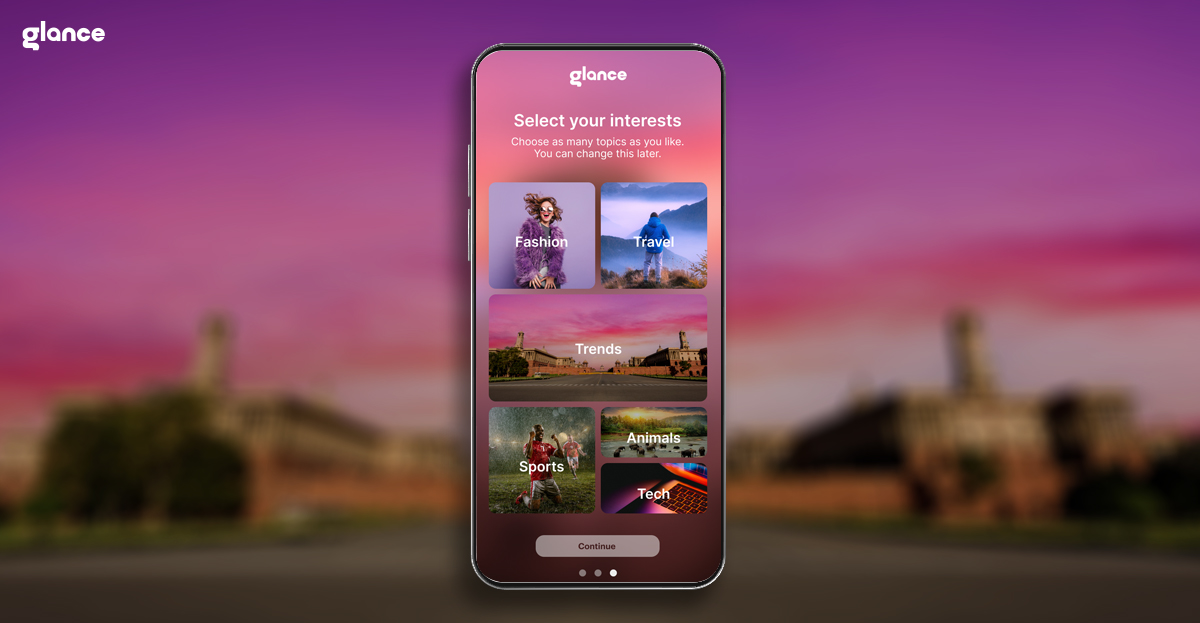Gemini to Snapdragon: AI in Mobile Phones Make Life Easier

Your smartphone is getting smarter every day, and it's all thanks to AI.
Just look at Google's latest announcement about Gemini AI—soon you'll be able to make calls and send messages without even unlocking your phone. This is just one example of how AI in mobile phones is making tasks simpler and faster.
While waiting for Gemini's features, many Android users are already experiencing similar AI magic through their smart lock screens. Take Glance, for instance—it's an AI-powered lock screen that learns what you like and shows you personalized news, sports scores, and entertainment updates the moment you pick up your phone. This shows how AI works in mobile devices to deliver exactly what you need when you need it.
You might already have this AI-powered smart lock screen on your Android phone. But before we explore that, let's understand how AI works in mobile technology today and what it means for your daily phone use.
The Foundation of Mobile AI
The integration of AI in smartphones starts at the hardware level. Qualcomm's Snapdragon processors exemplify how AI works in mobile devices through specialized computing units. These processors combine high performance with smart AI features, creating a foundation for advanced mobile capabilities. The latest Snapdragon 8 Elite demonstrates how AI in mobile phones can enhance everything from gaming performance to battery management.
Understanding how AI works in mobile systems requires looking at the various components working together. Modern smartphones use AI in mobile phones for numerous tasks: improving camera quality, optimizing battery life, enhancing security, and personalizing user experiences. This integration shows how AI works to process information locally, ensuring both speed and privacy.
Practical Applications and Benefits
The practical applications of AI in mobile phones become evident in daily use. Smart lock screens showcase how AI works in mobile interfaces to predict and present information users need before they even unlock their devices. Here's how AI helps enhance smartphone interfaces:
- Smart Lock Screen Integration: AI-powered lock screens predict and display relevant information before your device unlocks, including personalized news, sports updates, and entertainment content.
- Intelligent Resource Management: AI in mobile phones optimizes battery consumption and processing power based on individual usage patterns.
- Advanced Photography: Mobile AI processes images in real-time, adjusting settings and enhancing photo quality automatically.
- Personalized User Experience: The technology learns from user behavior to customize device settings, app recommendations, and content delivery.
These implementations demonstrate how AI works in mobile devices to reduce friction in our daily interactions. Instead of opening multiple apps, AI in mobile phones enables users to access information directly from their lock screens. This efficiency shows AI technology saves both, time and device resources while delivering a more intuitive user experience.
Security Considerations
As AI in mobile phones becomes more sophisticated, the technology industry must address security concerns. While AI works in mobile devices to enhance user experiences, experts note its potential misuse in phishing attempts and identity fraud. However, it's important to understand how AI works in mobile security features to protect users.
Responsible implementations of AI technology like secure smart lock screens, demonstrate how AI works in mobile systems to maintain user privacy. These platforms process information locally on the device, showing how AI in mobile phones can provide convenience without compromising security.
Consumer Impact and Adoption
For consumers, the benefits of AI in mobile phones are becoming increasingly tangible. From more efficient battery management to personalized content delivery, how AI works in mobile technology directly impacts daily phone use. The smart lock screen exemplifies this by delivering relevant information without requiring additional user action.
These implementations show how AI works in mobile interfaces to create more intuitive experiences. As AI in mobile phones becomes more prevalent, users can expect their devices to better understand and anticipate their needs while maintaining security and privacy standards.
Key Takeaways
Understanding AI in mobile phones and how it works in mobile devices is crucial for modern smartphone users. The technology has evolved beyond simple voice assistants to become an integral part of our daily mobile experience. Here are the essential points to remember:
- First, AI integration begins at the hardware level with processors specifically designed to handle AI tasks efficiently. This foundation enables advanced features while maintaining device performance and battery life.
- Second, the practical applications extend from smart lock screens to sophisticated camera systems, all working together to create a more intuitive user experience.
- Finally, while security concerns exist, responsible implementations of AI in mobile phones is to prioritize user privacy through local processing and secure data handling.
As we continue to see advancements in how AI works in mobile technology, users can expect even more sophisticated features that balance convenience with security. The key is to stay informed about these developments while understanding both the benefits and limitations of AI in mobile phones.
Looking Forward
The future of AI in mobile phones holds both promise and responsibility. As we see how AI works in mobile technology to enable new features, developers must balance innovation with security. The integration of AI in smartphones continues to evolve, with companies focusing on making these technologies more transparent and user-friendly.
While AI in mobile phones offers exciting possibilities, like Snapdragon's gaming enhancements or smart lock screen features, it's crucial to implement these advances responsibly.
Peace out!




